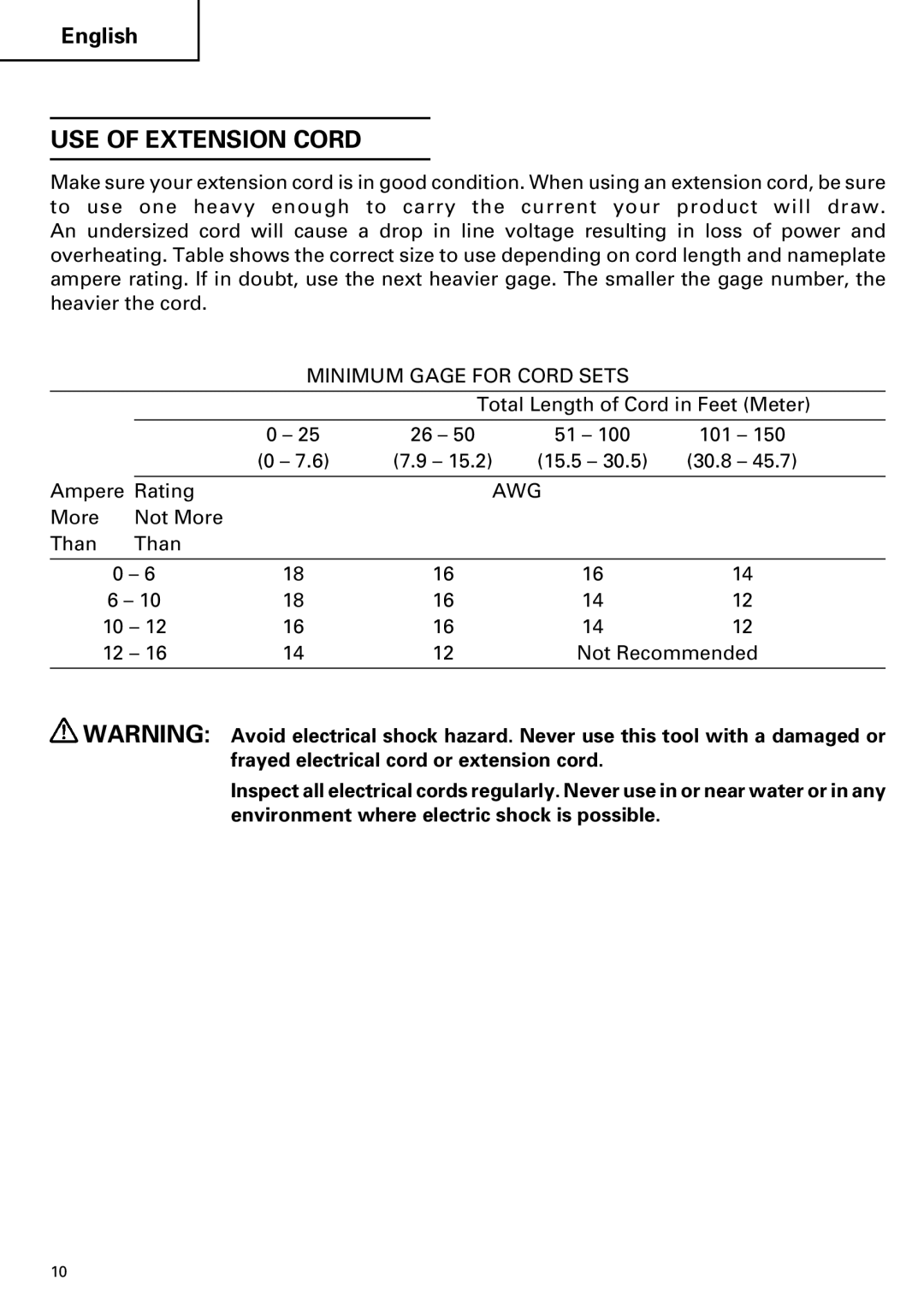
English
USE OF EXTENSION CORD
Make sure your extension cord is in good condition. When using an extension cord, be sure to use one heavy enough to carry the current your product will draw. An undersized cord will cause a drop in line voltage resulting in loss of power and overheating. Table shows the correct size to use depending on cord length and nameplate ampere rating. If in doubt, use the next heavier gage. The smaller the gage number, the heavier the cord.
MINIMUM GAGE FOR CORD SETS
|
|
|
| Total Length of Cord in Feet (Meter) | ||
|
|
| 0 – 25 | 26 – 50 | 51 – 100 | 101 – 150 |
|
|
| (0 – 7.6) | (7.9 – 15.2) | (15.5 – 30.5) | (30.8 – 45.7) |
|
|
|
|
| ||
Ampere Rating |
| AWG |
| |||
More | Not More |
|
|
|
| |
Than | Than |
|
|
|
| |
|
|
|
|
|
| |
0 | – 6 | 18 | 16 | 16 | 14 | |
6 – 10 | 18 | 16 | 14 | 12 | ||
10 | – 12 | 16 | 16 | 14 | 12 | |
12 | – 16 | 14 | 12 | Not Recommended | ||
|
|
|
|
|
|
|
![]() WARNING: Avoid electrical shock hazard. Never use this tool with a damaged or frayed electrical cord or extension cord.
WARNING: Avoid electrical shock hazard. Never use this tool with a damaged or frayed electrical cord or extension cord.
Inspect all electrical cords regularly. Never use in or near water or in any environment where electric shock is possible.
10
